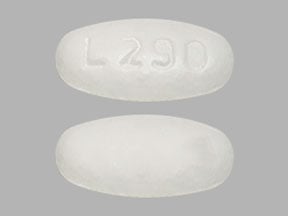
Tricor Coupons & Savings Card – Discount Prices from $12.54
Brand for: Fenofibrate
My prescription
Edit
145MG, Fenofibrate (30 Tablets)
Select pharmacy

CVS
$20.05
COUPON PRICE
Walgreens
$12.54
COUPON PRICE
Albertsons
$15.48
COUPON PRICE
Walmart
$18.84
COUPON PRICETricor savings card
Show this card to your pharmacist
Walgreens
$12.54
BIN
ID
PCN
GRP
019876
LH7F66D8EC
CHIPPO
LHX
Powered by
Related fibrates prescriptions
More prescriptions for high triglycerides
Related fibrates prescriptions
More prescriptions for high triglycerides
Price history for Tricor (brand) & Fenofibrate (generic)
30 Tablets, 145MG
Average retail price for Tricor
Average retail price for Fenofibrate
Average SaveHealth price for Fenofibrate
Our price history data is based on aggregated prescription data collected from participating pharmacies in America. Our prescription data updates daily to reflect the latest price changes. If you notice a missing data point, it means there wasn't sufficient data available to generate a monetary value for that date.
Over the last 12 months, the average discount price of Tricor is $14.56 using the SaveHealth savings card. That's an average savings of 91.73% on Tricor with our discount card.
*Retail prices are based on pharmacy claims data, and may not be accurate when we don't have enough claims.
Tricor (Fenofibrate) dosage forms
Dosage Quantity Price from Per unit 48MG 30 Tablets $5.61 $0.19 48MG 45 Tablets $7.16 $0.16 48MG 60 Tablets $8.72 $0.14 48MG 90 Tablets $18.33 $0.20 48MG 180 Tablets $30.27 $0.17 145MG 30 Tablets $12.54 $0.42 145MG 10 Tablets $10.18 $1.02 145MG 14 Tablets $10.65 $0.76 145MG 60 Tablets $16.08 $0.27 145MG 90 Tablets $25.72 $0.29
| Dosage | Quantity | Price from | Per unit |
|---|---|---|---|
| 48MG | 30 Tablets | $5.61 | $0.19 |
| 48MG | 45 Tablets | $7.16 | $0.16 |
| 48MG | 60 Tablets | $8.72 | $0.14 |
| 48MG | 90 Tablets | $18.33 | $0.20 |
| 48MG | 180 Tablets | $30.27 | $0.17 |
| 145MG | 30 Tablets | $12.54 | $0.42 |
| 145MG | 10 Tablets | $10.18 | $1.02 |
| 145MG | 14 Tablets | $10.65 | $0.76 |
| 145MG | 60 Tablets | $16.08 | $0.27 |
| 145MG | 90 Tablets | $25.72 | $0.29 |
What is the drug Tricor used for?
Tricor is used to help reduce cholesterol and triglyceride levels in the blood. It is often prescribed to patients with high cholesterol or hyperlipidemia to lower the risk of pancreatitis and cardiovascular disease.
Is Tricor being discontinued?
As of the latest available information, Tricor (fenofibrate) has not been officially discontinued. However, availability can vary based on location and specific formulations. It is advisable for individuals to consult with their healthcare provider or pharmacist for the most current information regarding the availability of Tricor in their area.
Does Tricor affect the kidneys?
Tricor (fenofibrate) can potentially affect kidney function. It is important for patients taking Tricor to have their kidney function monitored regularly, especially if they have pre-existing kidney issues. Any concerns or symptoms should be discussed with a healthcare provider.
What foods should you avoid while taking fenofibrate?
While taking fenofibrate, it is generally advised to avoid foods high in saturated fats and cholesterol. This includes fatty cuts of meat, full-fat dairy products, fried foods, and processed snacks. Maintaining a healthy diet with plenty of fruits, vegetables, and whole grains can help enhance the medication's effectiveness in managing cholesterol levels. Additionally, alcohol consumption should be limited, as it can increase triglyceride levels and potentially affect liver function. Always consult with a healthcare provider for personalized dietary recommendations.
Is Tricor still available?
Yes, Tricor (fenofibrate) is still available as a prescription medication. It is used to help reduce cholesterol and triglyceride levels in the blood.
